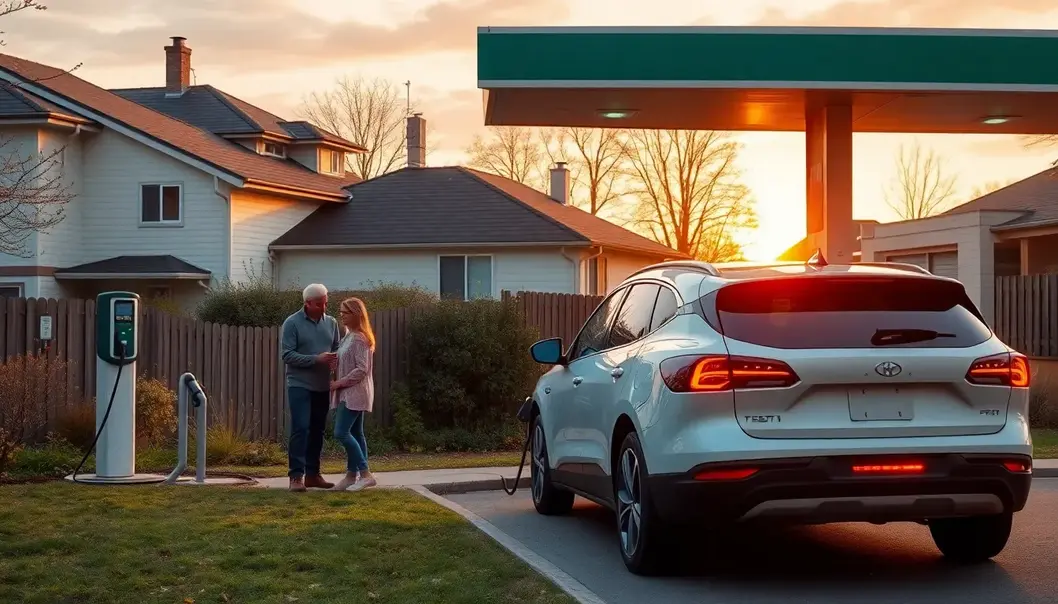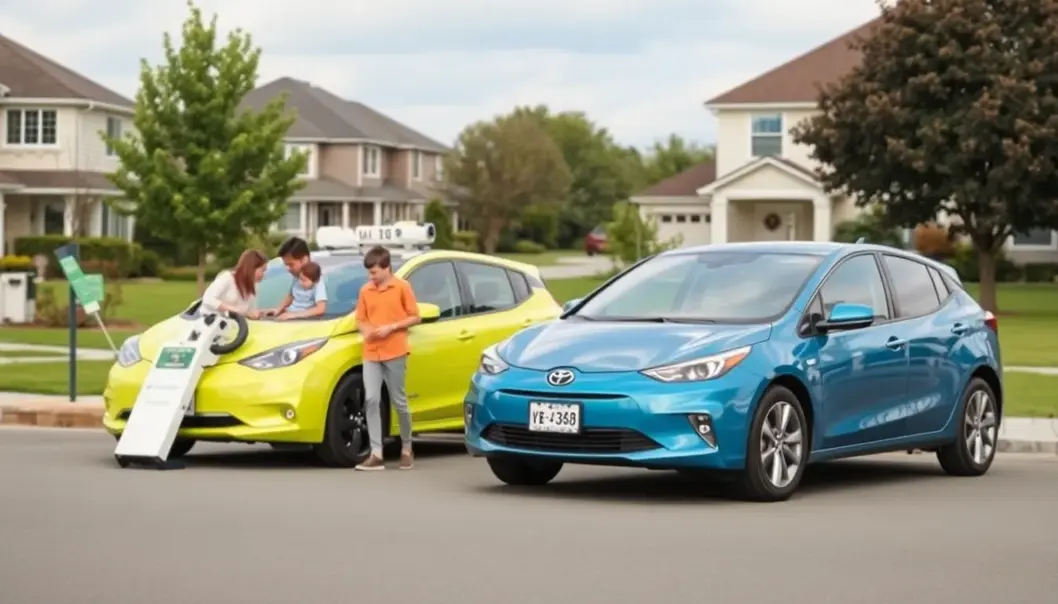Choosing a vehicle is a significant decision for families, impacting both finances and environmental footprint. As parents, you want to ensure the safest, most economical, and environmentally friendly choice for your children’s future. Whether you’re considering the switch to an electric vehicle (EV) or remaining with a traditional gas car, understanding the long-term benefits and drawbacks of each option is crucial. From cost savings and environmental impact to convenience and reliability, this guide offers comprehensive insights to help you confidently navigate the decision-making process, informed by the needs and priorities of a busy household.
Economical Insights: Cost & Maintenance

When evaluating the financial implications of electric versus gas vehicles, the consideration of purchase price, fueling expenses, and ongoing maintenance is paramount for busy parents. At the outset, electric vehicles (EVs) often carry a higher sticker price compared to their gas counterparts. However, this initial cost disparity can be mitigated by several government incentives aimed at encouraging EV adoption. These incentives can include tax credits and rebates, which significantly reduce the overall purchase cost for families looking to make an environmentally friendly decision while maintaining their budget.
Fueling costs present a noteworthy divergence point. Charging an EV typically costs less per mile than refueling a gas vehicle, especially if charging is done during off-peak hours at home. For parents constantly on the move, lower fueling costs represent a tangible saving that accumulates over time. Additionally, the static pricing associated with electricity, as opposed to the fluctuating nature of gas prices, provides a more predictable monthly expense.
In terms of maintenance, EVs generally feature fewer moving parts, resulting in lower maintenance expenses. There are no oil changes or exhaust system repairs needed, and brake wear is significantly reduced due to regenerative braking systems. Conversely, gas vehicles, with their internal combustion engines, require more frequent attention and replacements, which can elevate long-term costs.
The reliability of traditional gas cars still holds appeal for many families. Gas vehicles have been tested and refined over decades, offering a sense of familiarity and dependability that is comforting to those who prioritize reliability. Historically, this has translated into fewer unexpected issues for busy parents juggling numerous commitments.
Overall, careful consideration of these financial elements—enhanced by potential savings from EV incentives—can guide parents toward making an informed decision that aligns with their family’s priorities and lifestyle. While each option presents its pros and cons, understanding the long-term cost implications is essential. This due diligence ensures that families drive away with a vehicle choice that not only meets their needs but also aligns with their financial goals.
Environmental & Practical Considerations

When considering the environmental impact of electric and gas vehicles, busy parents have a lot to ponder. The environmental implications of these choices go beyond green marketing slogans, impacting future generations that families hold dear.
Electric vehicles (EVs) stand out for their zero tailpipe emissions, a strong advantage over gasoline-powered cars that emit carbon dioxide and other pollutants. These emissions contribute notably to urban air pollution and climate change, affecting the health and safety of developing lungs in children. By selecting an EV, families can reduce their carbon footprint, contributing to cleaner air and a healthier planet.
However, the environmental benefits of EVs depend significantly on the electricity source used for charging. In regions relying heavily on renewable energy, the advantages are maximized. In contrast, areas dependent on coal or gas-fired power may see reduced benefits. Parents should explore local energy mix options and possibly consider embarking on greener initiatives that coincide with home investments such as solar panels for a more comprehensive eco-friendly lifestyle.
A practical consideration in the EV versus gas debate involves the convenience and infrastructure associated with vehicle fueling. Electric cars offer the distinct advantage of fewer trips to the gas station. Instead, parents can charge their vehicles at home overnight, akin to charging a smartphone. Public charging stations are increasingly common, yet availability remains variable depending on location. This geographic variability can fuel range anxiety, where parents worry about the vehicle’s battery running out on longer trips, a factor less pronounced with traditional gas vehicles. However, advancements in EV battery range and the rapid expansion of charging networks are steadily alleviating these concerns.
Furthermore, electric vehicles often come with unique convenience features that appeal to busy families. Many EVs offer extensive driver assistance technologies and fewer mechanical parts, which means less frequent maintenance and fewer unexpected trips to the mechanic, freeing up valuable family time.
When weighed against gasoline vehicles, the environmental benefits and evolving infrastructure for electric vehicles make them an increasingly viable option for eco-conscious families. Balancing the immediate practical needs with long-term environmental considerations can guide parents toward a vehicle choice that aligns with their values and daily routines.
Final words
Both electric and gas vehicles have unique advantages tailored to different family needs. Electric vehicles offer long-term savings and ecological benefits, while gas cars provide immediate convenience and familiarity. Evaluating personal lifestyle, budget, and environmental goals will guide parents in making the choice that best supports their family’s current and future needs.
Make an informed decision on your next vehicle purchase. Visit our site for in-depth comparisons and guidance tailored to your family’s needs.
Learn more: https://www.familyvehiclesguide.com
About us
Family Vehicles Guide is dedicated to helping parents choose the best vehicles for their family’s needs. We provide detailed comparisons, expert insights, and personalized advice to ensure your decision supports both your budget and environmental priorities.

